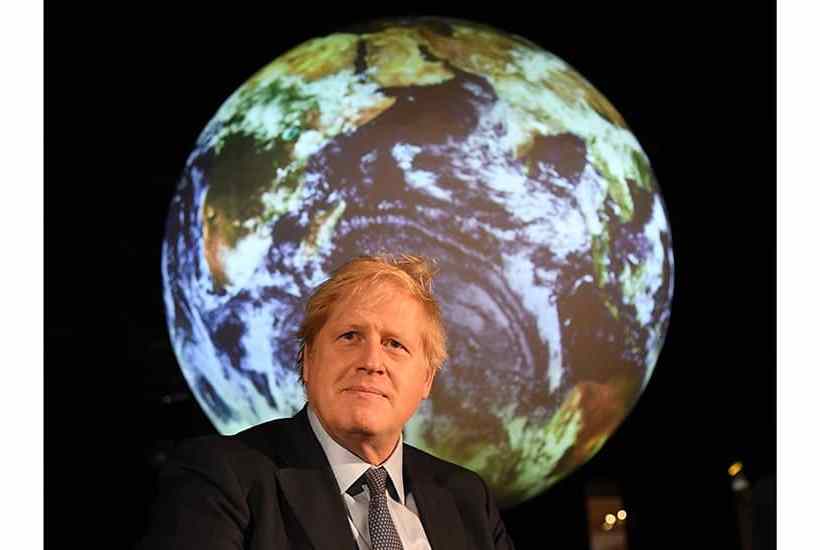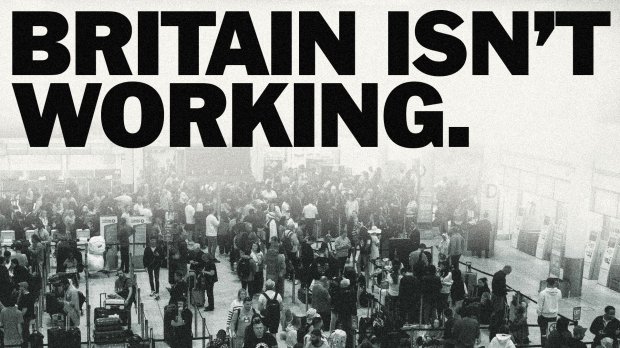The COP26 summit is unlikely to be an outright flop. There has been no shortage of drama, with speakers seeming to compete with each other to see who could use the most histrionic language. Justin Welby, the Archbishop of Canterbury, went so far as to compare the attending leaders to Nazi appeasers. He later apologised.
Some progress, albeit small, is being made. A hundred countries have been persuaded, some on the promise of sweeteners worth £14 billion, to sign a pledge to end deforestation by 2030. Brazil, the most important of all, is among them. India has agreed, for the first time, to set itself a date for achieving net-zero greenhouse gas emissions — although its target, 2070, is two decades beyond what the United Nations would have liked. Most leaders at Glasgow will be dead by then.
One thing is unlikely to have changed by the end of the two-week conference. For all the pledges made and aspirations expressed by countries around the world, Britain will remain one of a tiny handful of countries to have turned its carbon-reduction pledges into law. Almost all the others will do as they have previously done and allow themselves some wriggle room. Pointedly, China’s short-term carbon-reduction targets are expressed ‘per unit of GDP’ — emphasising that it has no intention of sacrificing economic growth on the altar of tackling climate change.
This leaves Britain with a very serious problem: what to do if some of the technology which will be required to reach net zero disappoints? It is very noble to want to set an example to the rest of the world by legally committing yourself to eliminating carbon emissions. It will not look so clever in, say, 15 years’ time if we are still struggling to store copious quantities of energy generated on sunny and windy days for sunless and becalmed days when our wind farms and solar farms are generating next to nothing.
The Prime Minister insists there is nothing ‘hair-shirt’ about his decarbonisation plans, yet for this to be true he would need technology that has not yet been invented and no one really expects to be any time soon. Technology does often surprise on the upside — nobody could have predicted the scale of the computing revolution we have seen in recent years. It can also disappoint. Half a century ago, nuclear fusion was seen by many as the answer to all our energy needs, providing almost limitless quantities of energy at next to no cost. Yet had we wagered our future on its success at that point, closing down all alternative sources of power, we would now be living in the dark.
In 2019, parliament waved through the net-zero target without even a Commons vote. MPs relied at that point on an estimate by the Committee on Climate Change that achieving net zero would cost in the order of £1 trillion by 2050. Two years on, the Treasury says it cannot put a figure on the costs — and no wonder, when much of the technology which will be required either doesn’t exist or has yet to be scaled up. All we can be sure about is that the policies so far announced, such as banning new gas boilers by 2035, will cost households many thousands of pounds — both in buying alternative heat pumps and in insulating homes to make them effective.
It is highly improbable that other countries will choose to make their people poorer, or colder, in order to meet arbitrary carbon reduction targets. Even Germany — seen by many as one of the more enlightened countries in tackling climate change — has signalled its intent by responding to the spike in global gas prices by upping coal-burning. Like Britain, it had been phasing out coal, but it will not do that at the price of leaving the country short of affordable power.
What our own government needs — but there is scant sign it has yet — is a Plan B in the event of decarbonisation technology failing to advance in the way that is hoped. Specifically, is Britain prepared to relax the 2050 deadline if it becomes clear that to proceed means undermining our remaining heavy industry and causing severe economic hardship? So far, the government has not attempted to answer this question. For now, its main agenda seems to be to up the rhetoric of doom, so as to argue that there is simply no alternative to achieving net zero by 2050 — that to fail to do so would be to lay waste to the Earth and the economy likewise. This is hyperbole, deployed to conceal the lack of a clear plan.
Glasgow was supposed to mark the moment when the rest of the world shifted towards sharing Britain’s sense of urgency on climate change. Yet for all the progress which has been made this week, there is little sign that other countries are prepared to go along. People want to know: how can net zero be reached without trapping millions of people in poverty? There is still no answer.
Got something to add? Join the discussion and comment below.
Get 10 issues for just $10
Subscribe to The Spectator Australia today for the next 10 magazine issues, plus full online access, for just $10.
You might disagree with half of it, but you’ll enjoy reading all of it. Try your first month for free, then just $2 a week for the remainder of your first year.














Comments
Don't miss out
Join the conversation with other Spectator Australia readers. Subscribe to leave a comment.
SUBSCRIBEAlready a subscriber? Log in